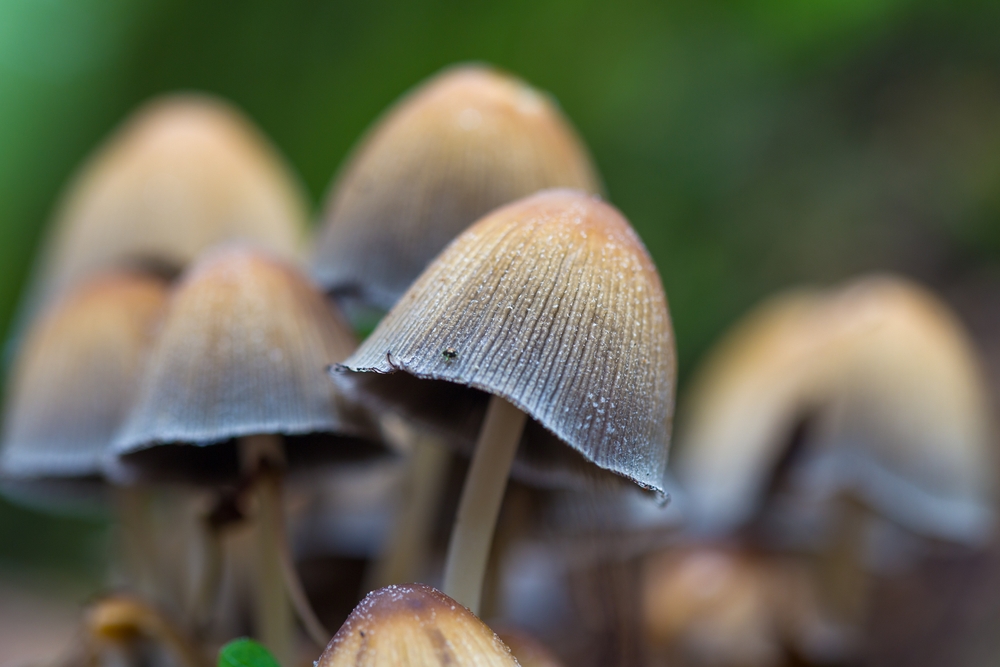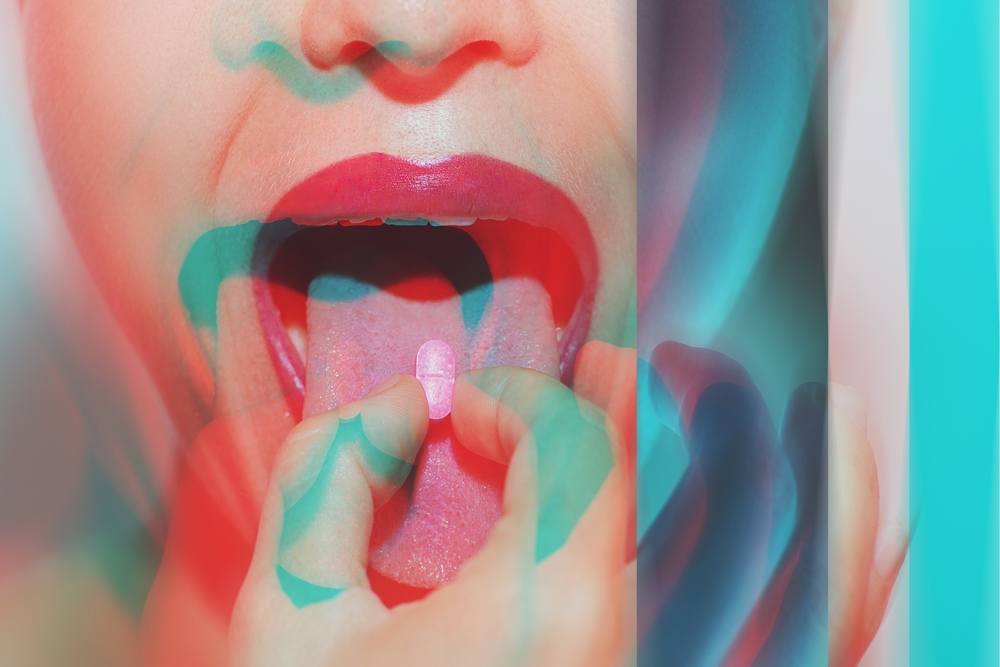


Hallucinogens are a class of drugs that can change the way you perceive the world around you. These substances might make you see, hear, or even feel things that aren't there, altering your sense of reality. Common hallucinogens include:
These can be consumed:
Hallucinogens can come from naturally occurring sources and synthetic lab drugs. Naturally occurring hallucinogens include psilocybin mushrooms, which have been used in spiritual practices for centuries. Other plant-based hallucinogens like peyote (which contains mescaline) and ayahuasca are also used in traditional rituals.

Synthetic hallucinogens like LSD and MDMA are made in labs and are often more potent. These synthetic drugs are widely available and have gained popularity for their intense, mind-altering effects. However, synthetic hallucinogens tend to have more unpredictable side effects and can pose a greater risk to your mental and physical health.
When you use hallucinogens, you’ll feel detached from your body and surroundings. You may also hallucinate or experience alterations in your perception of the world. This experience often ranges from mild to intense and may vary from one person to the other and drug to drug. For example, you may feel subtle changes in your surroundings or extreme terror with a belief that the perceptions or visions are real.
When you take a large dose of a hallucinogen, it is referred to as “tripping.” Tripping can either be a good trip with great experiences and feelings or you could experience a bad trip that is unpleasant or frightening.
A small dose of a hallucinogen is called microdosing, which means using 5 to 10% of a usual psychoactive dose. People micro dose to:
Hallucinogens primarily affect your brain by interacting with serotonin receptors responsible for regulating mood, perception, and emotions. When you use a hallucinogen like LSD or psilocybin, these drugs overstimulate the serotonin system, leading to altered sensory experiences, changes in thinking, and even shifts in your sense of self.
Some hallucinogens, like MDMA, also release large amounts of serotonin and other neurotransmitters, creating feelings of emotional connection and empathy. However, this disruption of normal brain function can also lead to adverse effects, such as bad trips, paranoia, and confusion.

While hallucinogens are not considered as physically addictive as other controlled substances like opioids or alcohol, they can still lead to psychological dependency. Many dissociative drugs and MDMA have an increased risk of physiological addiction. You may experience withdrawal symptoms when you stop MDMA, ketamine, or PCP after a long period.
Hallucinogens reinforce continued use. So, you might find yourself craving the experiences these drugs create, mainly if you use them to escape from reality or cope with emotional pain or past trauma. Over time, this can lead to a pattern of abuse, where the drug becomes a regular part of your life despite its negative effects on your mental health.
NIDA points out that repeated LSD use may cause tolerance. Tolerance happens when your body adjusts to a certain amount of a drug. When you have tolerance, you may need to use larger doses to get the desired effect. And this can be very dangerous. As we mentioned earlier, hallucinogens can cause bad trips. Bad trips have been linked to emotional and psychological trauma.
While some people use hallucinogens recreationally, they can have severe long-term impacts on your brain. Prolonged use can cause persistent changes in mood, memory, and mental clarity. One of the significant risks is developing hallucinogen persisting perception disorder (HPPD), where hallucinations and visual disturbances continue long after the drug has worn off.
Hallucinogens can also trigger or worsen mental health conditions, particularly depression and anxiety. Repeated use may increase your vulnerability to mood disorders, and in some cases, the psychological damage can be life-threatening. There’s also a possibility of overdose. While overdose on classic hallucinogens like psilocybin, mescaline, or LSD is rare, dissociative drugs like ketamine and PCP carry an increased risk of overdoes.
Other common effects include hyperthermia, dehydration, increased heart rate, nausea, and elevated blood pressure that can leave you feeling disoriented, dizzy, and physically uncomfortable. Dissociative hallucinogens can also affect motor coordination and cause numbness, leading to an increased risk of accidents or injuries. Long-term use may damage your organs, including your liver and kidneys, as your body struggles to process and eliminate the drugs.

Some signs of addiction to hallucinogens can be subtle at first but become more noticeable over time. Here are a few key indicators:
If you or someone you know is struggling with hallucinogen abuse, it’s essential to know that help is available. Over time, hallucinogen use can lead to serious physical, mental, and emotional harm, and breaking free from this cycle may feel overwhelming. However, mental health services and specialized addiction treatment programs can offer the support you need.
One of the first steps in getting help is recognizing the issue and reaching out to professionals who understand the complexity of psychedelic drug use. Currently, there’s no FDA-approved treatments specifically for hallucinogen addiction, but a comprehensive treatment plan can make a big difference in recovery. Your doctor will likely recommend cognitive-behavioral therapy (CBT), individual counseling, and group support. These interventions help address both the physical effects of hallucinogen use and the underlying emotional or psychological issues that may be driving the addiction.
Facilities like More Than Rehab provide comprehensive care, offering detox programs, behavioral therapies, and support for both the short- and long-term effects of hallucinogens. Whether you're experiencing adverse effects from a single bad trip or you're dealing with prolonged use, professional help can make a big difference.


